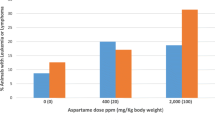Abstract.
Cancers of the intestine are amongst the most frequent tumors in the Western countries. They arise through the stepwise, progressive disruption of cellular signalling cascades which control cell proliferation, survival and differentiation. The proto-oncogene K-ras functions as an important molecular switch linking several of these signalling pathways. Activating mutations of K-ras are found in about 50% of colorectal cancers, but their contribution to tumor initiation and progression is still poorly understood. Murine models provide excellent opportunities to identify and define the roles of genes involved in cancer formation and growth in the digestive tract. In this review, I will discuss the biological properties of oncogenic K-ras, its influence on cell signalling and its role in colorectal tumorigenesis based on recently established murine models.
Similar content being viewed by others
Author information
Authors and Affiliations
Additional information
Received 11 July 2002; received after revision 30 August 2002; accepted 9 September 2002
Rights and permissions
About this article
Cite this article
Janssen, KP. Murine models of colorectal cancer: studying the role of oncogenic K-ras . CMLS, Cell. Mol. Life Sci. 60, 495–506 (2003). https://doi.org/10.1007/s000180300041
Issue Date:
DOI: https://doi.org/10.1007/s000180300041




